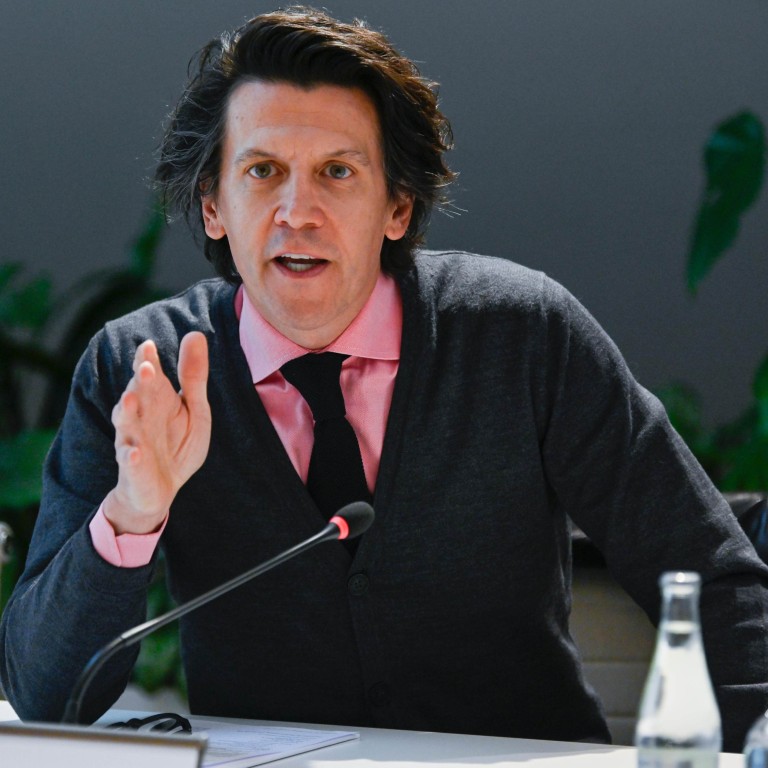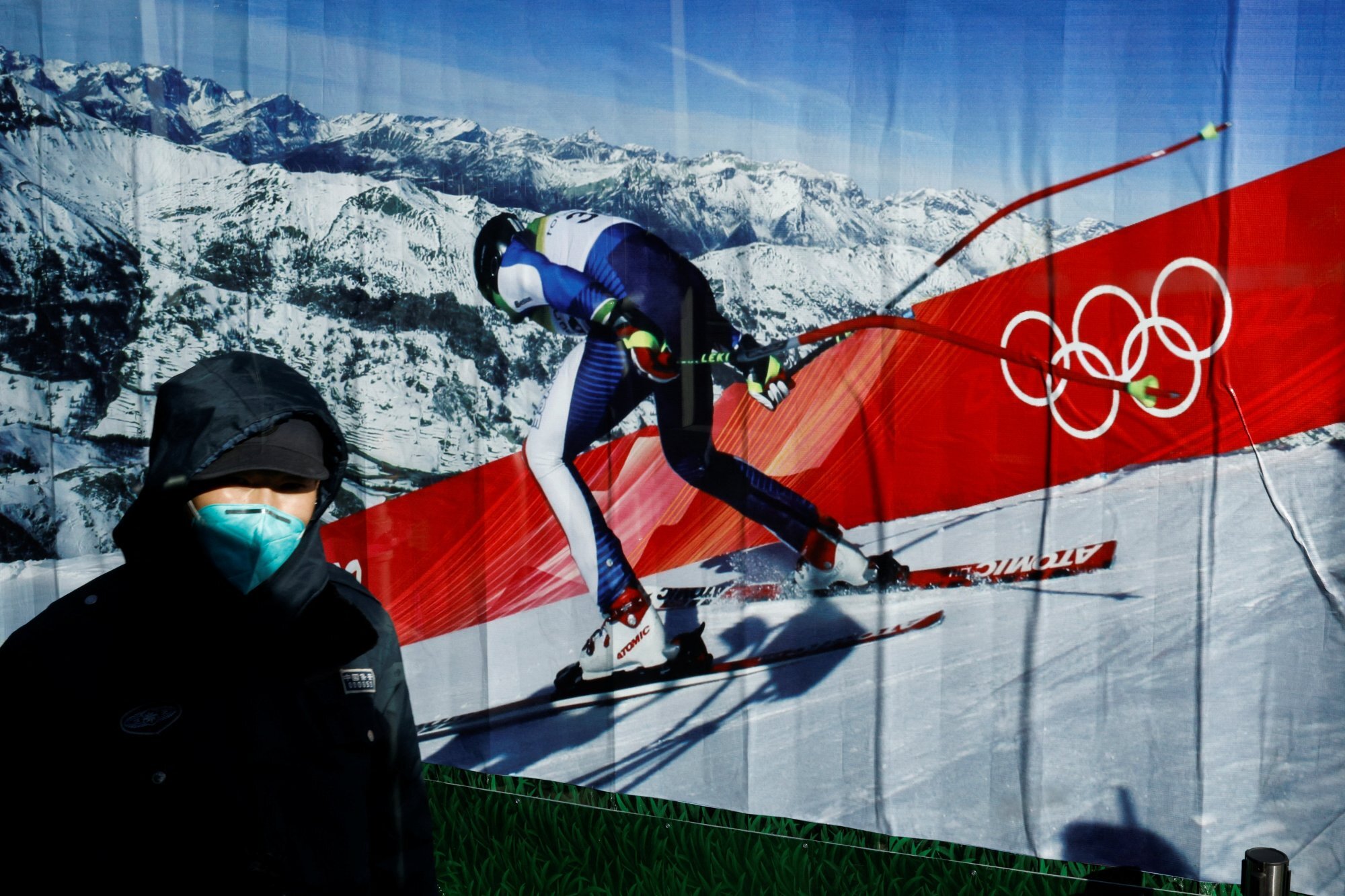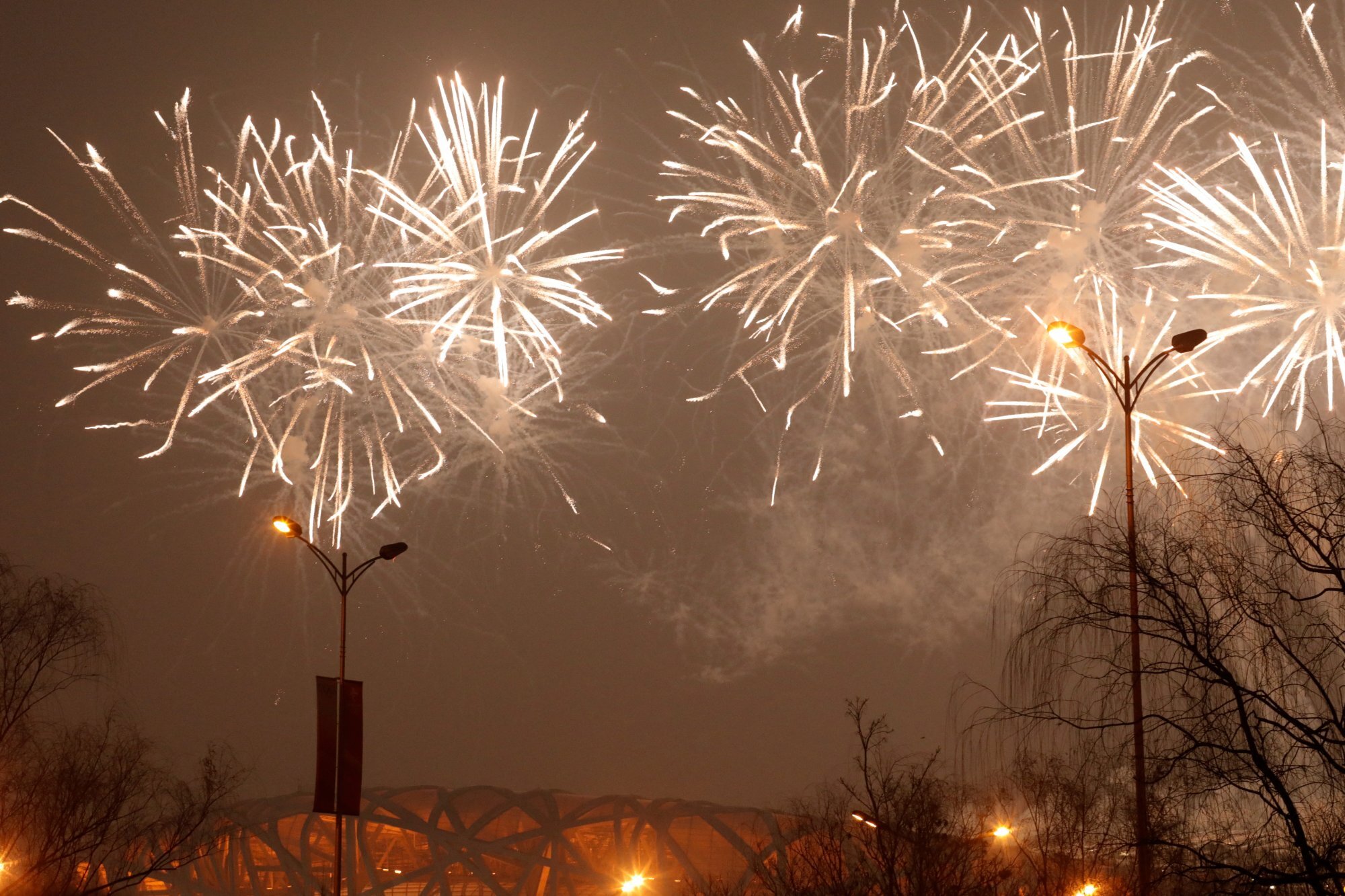
Winter Olympics: IOC leaving ‘no stone unturned’ to ensure safe Beijing Games as Omicron threatens Chinese capital
- Christophe Dubi, the International Olympic Committee’s executive director says he can never relax in the run-up to the Games
- This will be the second Games that Dubi has organised during the pandemic, after the Tokyo Olympics last summer
When the clock counts down the final seconds to the start of the Winter Olympics in 10 days time, amid all the excitement, pomp and ceremony in Beijing, one man will be taking it all in and trying to keep a check on his emotions.
The lighting of the flame will be the culmination of months of hard work for Christophe Dubi, the International Olympic Committee’s executive director, and his team, who are responsible for ensuring the event goes off without a hitch.
In a normal Olympic year that would be hard enough, but they are doing it in the middle of a pandemic, again, and at a time when not only is the Omicron variant surging, but international relations are such that armed conflict between the world’s superpowers seems but a moment away.

“This is in my little world, and nothing revolves around me, no one cares,” Dubi said. “But when you are in that countdown [on February 4] at 7.59:50pm, and you’re sitting in the stadium in Beijing, or watching the television count this down to 10 is incredibly emotional, because you know that the world is watching and you know what it takes to get there.
“So, I can tell you, that is what retains the attention of people there [in Beijing] at night.”
Dubi does himself a disservice in suggesting no one cares. He is the man who will have put together two Games during the coronavirus years, and while the local population in Japan were not entirely thrilled to be hosting the event, in China he is contending with arguably the toughest approach to Covid-19 in the world.
Easier to test negative at Winter Olympics as IOC reduces Ct value
He will, like it or not, be judged on the success of next month’s event. Much as he was in Tokyo last summer.
The main difference from Dubi’s perspective is that he and his team have, to a certain extent, been through this before. In Tokyo, with testing and vaccines still being worked on to find the most effective, “the unknowns were immense”.
But Beijing presents its own challenges, not least in the government’s determination that trying to keep the coronavirus out is best policy. In contrast other nations have begun the process of living with Covid.
“They [China] don’t live with Covid,” Dubi said. “And, as a result, what we had to change, or to adapt, was to a much more stringent regime of anybody that is inside the loop, and those that are outside the loop.”
While having been in this position just months before allows for a certain amount of confidence on the IOC’s part, the executive director said they still had to convince organisers that their measures for keeping the Games relatively safe would work.
“And you are still to be tested against the reality, which is bringing 25,000 people inside this loop,” Dubi said. “So you can never relax. You can never leave one stone unturned. It is constant and forensic attention.”
The political backdrop against which the Games will take place is also far more fraught than it has been for many years, although Dubi maintained that as a “politically neutral organisation” it was not the IOC’s place to get involved.
Olympics committee has ‘no certainties’ to give in Peng Shuai case
“You’re entitled to have a view on what the IOC does and what our mandate is,” he said. “But we have one and we have to be true to it. You see, it wouldn’t be fair that for an organisation that is politically neutral, and on that we are very clear, to operate differently.
“We are very consistent and quiet diplomacy is trying to help where we can on topics where we think we can have a positive influence. And let me assure you on one thing, it is always with the best of intentions in order to help, especially people, when we can help people.”
From his point of view the hardest challenge has been making the Games happen during a pandemic, and Dubi said he did not think “people realise what that means”, given that it was already “quite a task” to bring the athletes of the world together under one roof.
“It is quite a complex task,” he said. “And when you do that, in Covid, hats off to the organisers because to meet those challenges, it’s really immense.”

There are 10 days until the start of the Games, and another 16 after that before the closing ceremony on February 20. Dubi said he would struggle to think that far ahead, but success would be living up to the mission to deliver “a safe Games while Omicron is raging around the globe”.
“So, all the measures that we have suffered blood and tears to get there, they have paid off and then the rest will have followed because the athletes will be great. They will inspire us. And we have venues of the highest quality, which means that they can really shine out there.
“Then after that you will have the whole legacy for the winter sports and everything else which undeniably will be a very positive one after these Games. If we do that, it will be huge.”

